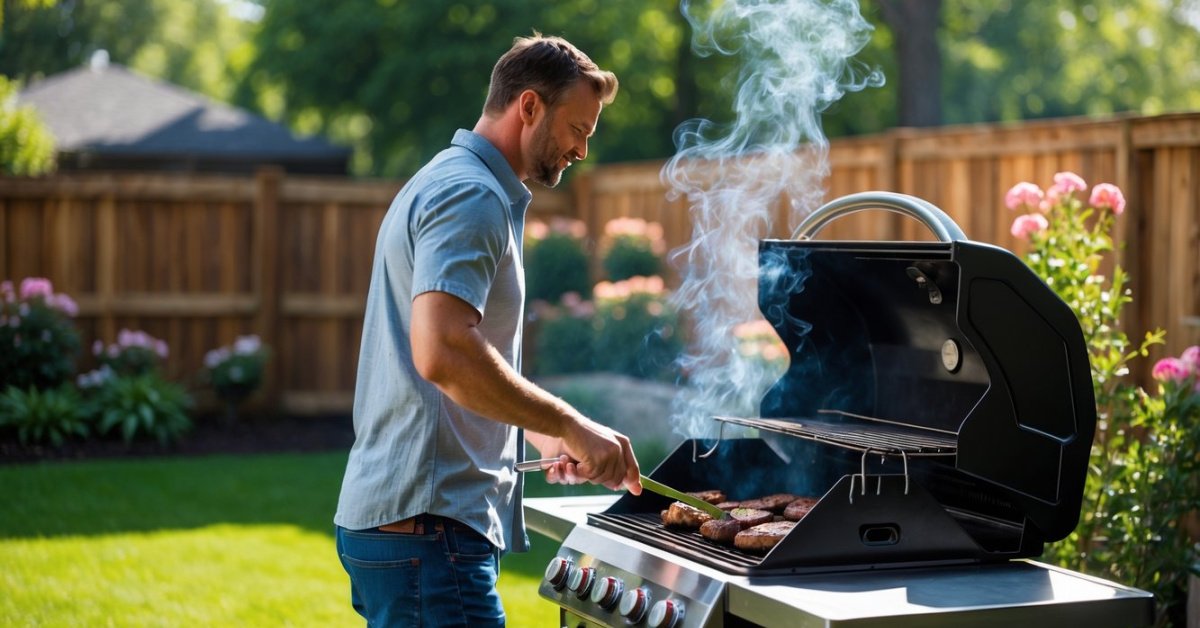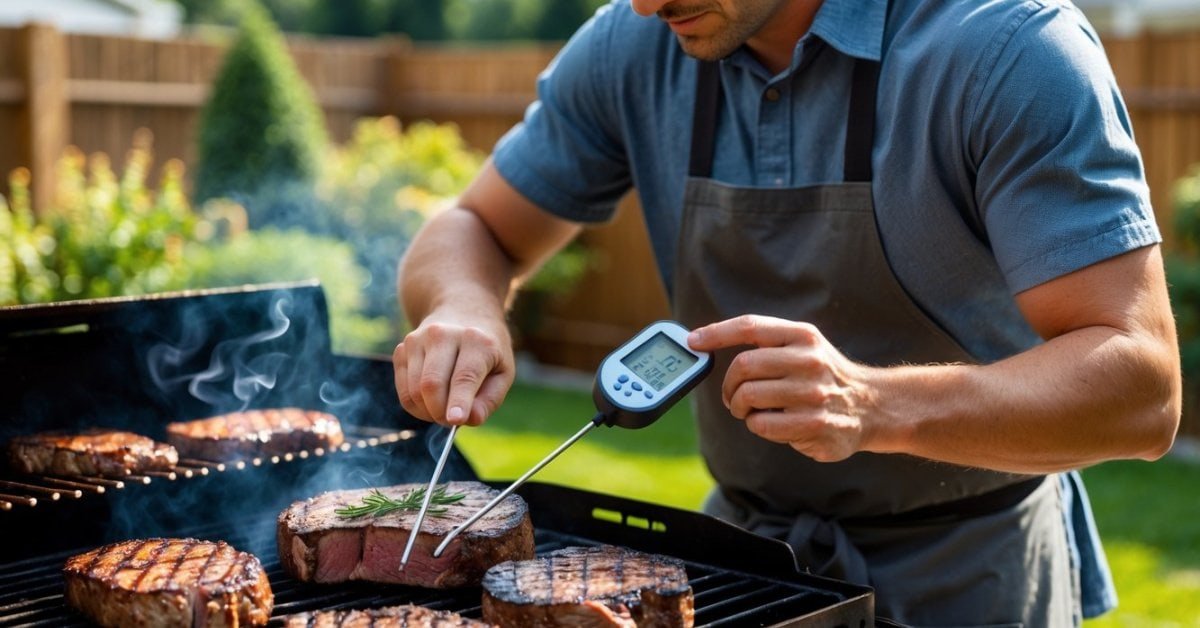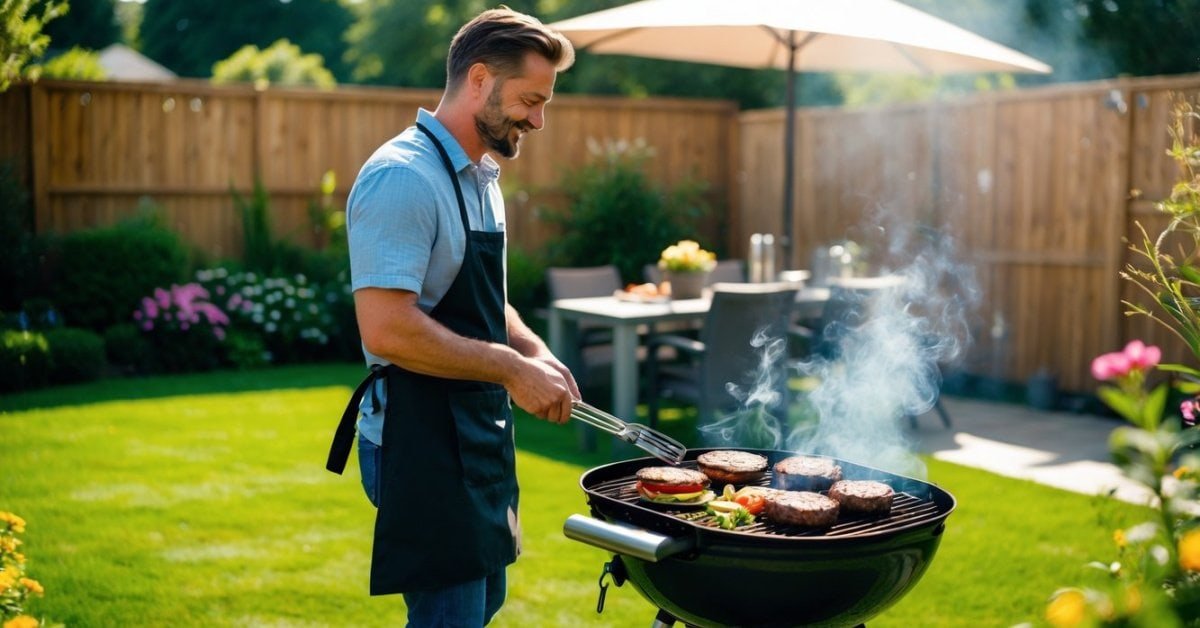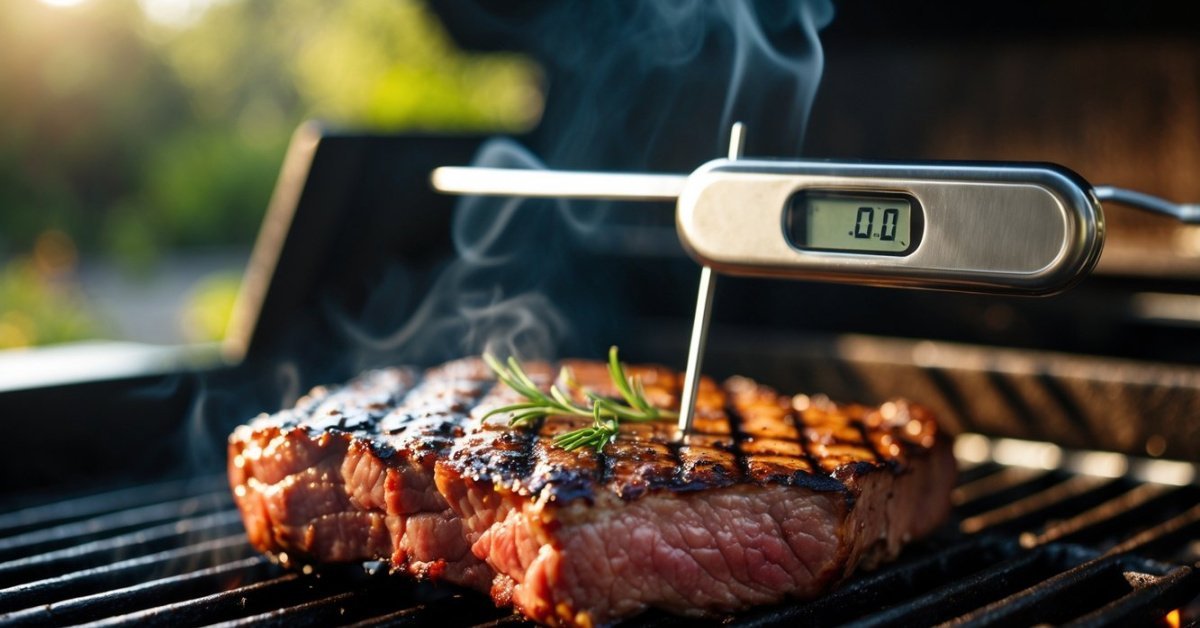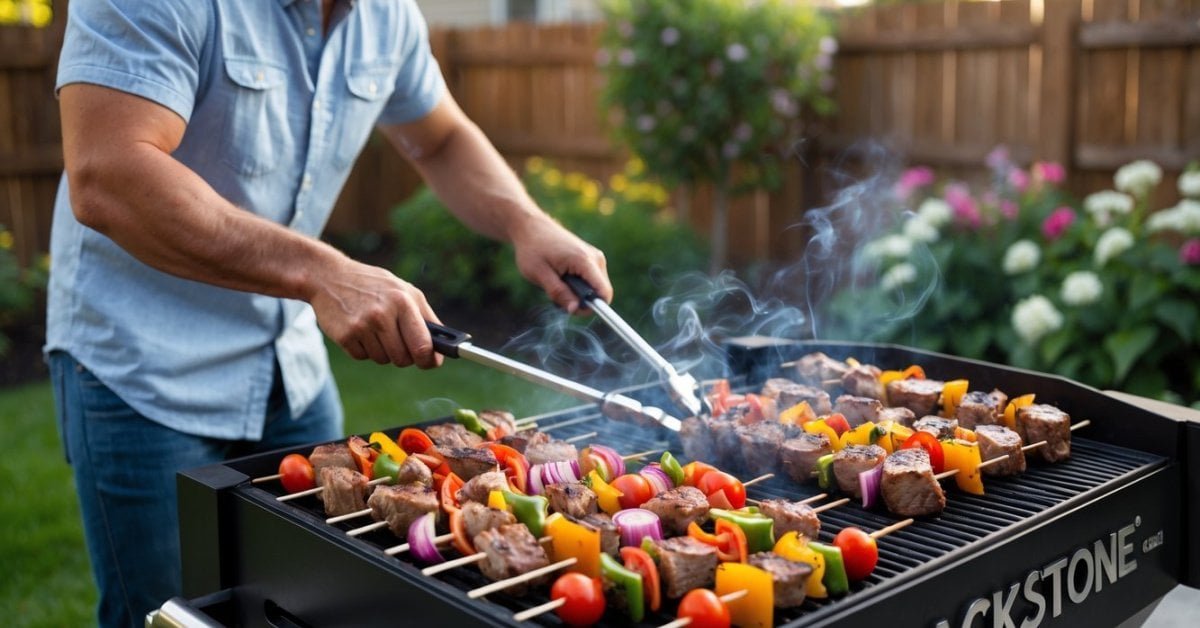When I’m out grilling on the go nothing beats the taste of perfectly cooked food. But getting that juicy steak or tender chicken just right takes more than guesswork. That’s where a good thermometer comes in handy making sure I never serve undercooked or overdone meals.
With so many options out there choosing the right thermometer for my portable grill can feel overwhelming. I want something reliable easy to use and tough enough to handle outdoor adventures. Let me share what I look for to help make grilling on the move both simple and delicious.
Understanding the Importance of Grill Thermometers
Grill thermometers give me complete control over cooking temperatures, making every grilled cut consistent. Portable grills hold heat differently than full-sized models, so I rely on accurate thermometers to track internal meat temps and surface heat zones.
Undercooked chicken and overdone steaks both result from guessing instead of measuring. I’ve checked hundreds of pork chops, briskets, and burger patties, and the thermometer readings always explain quality differences. USDA food safety guidelines recommend 165°F for poultry and 145°F for most beef. Without a reliable thermometer, hitting these numbers is guesswork.
Accurate temperature control also means I can experiment with low-and-slow smoking or quick searing, even on a small grill. Many portable models have hot and cold spots, so I use thermometers to identify where to place food for perfect searing or gentle finishing. A good thermometer prevents common portable grill issues—burnt exteriors with raw centers or overly dry proteins.
I’ve tried everything from built-in dial types to wireless digital probes. Digital thermometers with fast response times let me check food without losing heat by keeping the grill lid open too long. Quick readings make a real difference when working with thin cuts or thick steaks.
Grill thermometers aren’t just about safety—they’re essential tools for achieving my desired doneness and flavor, whether I’m grilling at a campsite, tailgate, or in my backyard.
Types of Thermometers for Portable Grills
Selecting a thermometer for a portable grill means balancing speed, accuracy, and convenience. I’ve tested plenty of models during tailgates and at my old Texas BBQ cart—each brings its own strengths to the fire.
Instant-Read Thermometers
Instant-read thermometers give fast and precise readings, typically in 2 to 5 seconds. I grab mine for chicken thighs, steak, or burgers when I want a quick check on doneness without losing much heat. Most models use digital displays, while analog dials exist but respond slower. Good examples include the ThermoWorks Thermapen and the Lavatools Javelin. Instant-reads excel when I want to check several cuts in quick succession or need a compact tool for portable setups.
Leave-In Probe Thermometers
Leave-in probe thermometers monitor temperatures throughout the cook, making them perfect for pork shoulders, briskets, or whole chickens on my portable smoker. The probe stays inside the meat while a cable connects to a digital readout—or, increasingly, a Bluetooth or Wi-Fi app. Products like the ThermoPro TP20 or the MEATER+ let me keep the lid closed and the heat steady. I rely on these for longer smoking sessions or larger pieces where guessing isn’t an option.
Infrared Thermometers
Infrared thermometers measure surface temperatures, not internal temps, so I use them to check grill grate heat before placing my steaks or veggies. Pointing the laser at different grill zones helps me identify hot or cool spots, which matters on compact portable grills. The Etekcity Infrared Thermometer and the ThermoWorks IR-Gun-S are portable favorites. These thermometers don’t replace instant-reads or probes for food safety, but they’re unbeatable for dialing in the perfect sear.
Key Features to Consider When Choosing a Thermometer for Portable Grills
I’ve tested dozens of thermometers on every kind of grill, from my old BBQ cart’s workhorses to a quick sear on a park-side portable. Matching a thermometer’s features to portable-grill demands makes all the difference in cooking results and convenience.
Accuracy and Response Time
Accuracy and response time anchor reliable grilling. Most portable-grill sessions call for instant answers to check thin steaks or quickly-searing veggies. I look for models providing ±1.8°F (1°C) accuracy and response times under 4 seconds—standards met by brands like ThermoWorks and ThermoPro. Fast, exact readings keep me from overcooking brisket or pulling chicken too soon.
Durability and Build Quality
Durability and build quality stand out when grilling on the move. Metal probes and tough casings prevent damage if dropped near the grill or knocked off a side table. Waterproof or splash-resistant features, like those found on many Thermapen models, let me work through rain or greasy fingers. Secure seams and a sturdy feel matter as much as accuracy in real backyard or campsite use.
Portability and Size
Portability and size matter most when gear space runs tight. Slim profiles and lightweight designs, for example from Lavatools Javelin or smaller ThermoPop thermometers, fit easily in apron pockets or grill tool rolls. Foldable or retractable probes keep packing simple and prevent punctured bags, making transport hassle-free.
Temperature Range
Temperature range defines the thermometer’s versatility for different grilling needs. Steak searing and brisket smoking each demand broad capability. I seek probes covering 32°F to 572°F (0°C to 300°C) or higher; that range handles rare burgers, roast pork, or even deep-frying. Models with lower minimums help with chilled-cook techniques, while high maximums stand up to grill grates or sugar work.
Ease of Use and Display
Ease of use and display take priority when working over open flames. Backlit or large digital displays remain readable in direct sun or twilight, which helps during late-night BBQ sessions or in shifting light at competitions. Simple single-button operation speeds up checks with greasy or gloved hands, and rotating or auto-orienting screens let me read numbers at any angle. Bright, clear numbers keep me focused on flavor, not squinting at the tool.
Top Recommendations for Portable Grill Thermometers
- ThermoWorks Thermapen ONE
ThermoWorks Thermapen ONE gives nearly instant readings in 1 second in most tests, which keeps grill lids closed and heat steady. I find its ±0.5°F accuracy, waterproof rating, rotating display, and compact build outperform other instant-read thermometers for portable use.
- Lavatools Javelin PRO Duo
Lavatools Javelin PRO Duo delivers sub-3 second response, NSF certification, and a folding probe for safe pocket storage. My experience shows its large display stays visible in direct sunlight, while magnet backing attaches easily to grill stands or prep tables.
- Weber iGrill Mini
Weber iGrill Mini pairs with smartphones via Bluetooth, which lets me monitor temps from up to 150 feet away. Its compact probe handles up to 716°F, lasting an entire day’s cook on a single coin battery. I frequently use this probe for chicken and steak on tailgate trips or in park cookouts.
- ThermoPro TP20 Wireless Meat Thermometer
ThermoPro TP20 includes two probes and a wireless receiver, showing current and target temperatures without checking the grill. I rely on this when smoking ribs or brisket low-and-slow, letting me relax with friends while keeping tabs on my roast.
- Etekcity Infrared Thermometer 774
Etekcity Infrared Thermometer 774 scans grill surfaces without any contact. I often reach for this to find hot and cold spots, which improves consistency for burgers and sausages. Its laser guide and backlit display help in smoky or low-light setups.
| Thermometer Model | Type | Response Time | Temperature Range | Special Feature |
|---|---|---|---|---|
| ThermoWorks Thermapen ONE | Instant-read | 1 second | -58°F to 572°F | Rotating display, waterproof |
| Lavatools Javelin PRO Duo | Instant-read | 2-3 seconds | -40°F to 482°F | Magnet, large display |
| Weber iGrill Mini | Leave-in probe | 2 seconds | 32°F to 716°F | Bluetooth, smartphone app |
| ThermoPro TP20 | Dual leave-in probes | N/A | 32°F to 572°F | Wireless receiver |
| Etekcity Infrared 774 | Infrared | <1 second | -58°F to 716°F | Laser guide, non-contact |
Thermometers like these bring grilled recipes within easy reach, from medium-rare steak to tender pulled pork, wherever I fire up a portable grill.
Tips for Proper Use and Maintenance
Proper calibration ensures accuracy every time I grill. I follow the manufacturer’s instructions for calibrating my digital and analog thermometers, usually using a mixture of ice water for zeroing or boiling water for checking at 212°F. Holding accuracy matters most when I’m aiming for perfect brisket or safe chicken.
Regular cleaning prevents cross-contamination and keeps my readings reliable. I sanitize probe tips with a food-safe wipe or warm soapy water, never submerging the digital units. Cleaning after each use avoids residue buildup, which can affect performance.
Proper storage protects thermometer components. I store my digital thermometers in their case or a dry kitchen drawer to avoid drops, dust, and moisture exposure. Leaving them outside or near greasy grill areas risks shortening their lifespan.
Battery maintenance keeps wireless and digital models dependable. I check battery levels before any big grilling session. Replacing batteries at the first sign of weak display or slow readings helps me avoid surprises mid-cook.
Safe handling maintains probe accuracy. I insert the probe into the thickest part of the meat, avoiding bone and grill grates. Direct heat or flames can damage sensitive probe tips, so I avoid letting probes get too close to open flame.
Inspection after every grilling session identifies wear and tear. I check for cracks in the probe, loose cables, or faded digital displays. Fixing these early brings peace of mind next time I fire up the portable grill.
Consistent routine maximizes tool life. Performing these steps after each use has kept my favorite thermometers, like the ThermoWorks Thermapen ONE and ThermoPro TP20, accurate over hundreds of cooks on everything from sausage links to thick pork shoulders.
Conclusion
Choosing the right thermometer for your portable grill can make all the difference in your outdoor cooking adventures. I’ve found that investing in a reliable model not only boosts my confidence but also lets me focus on enjoying the grilling process with friends and family.
No matter your grilling style or experience level there’s a thermometer out there that fits your needs and keeps your food safe and delicious. Happy grilling and may every meal you cook be perfectly done!

